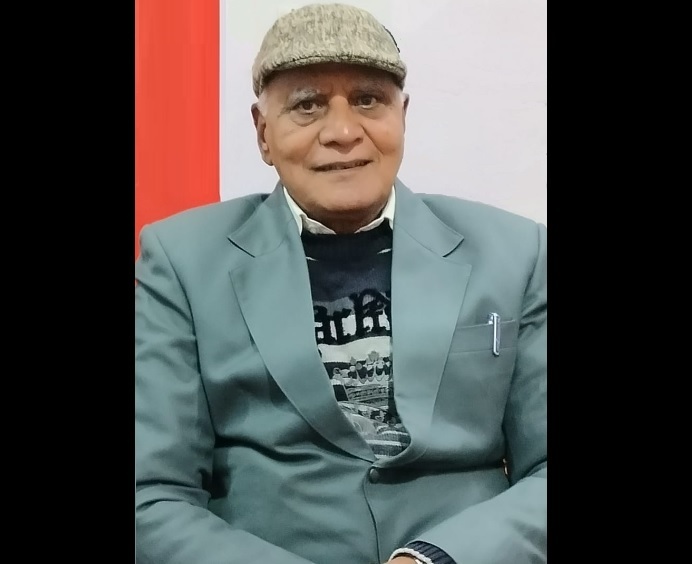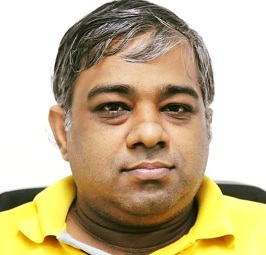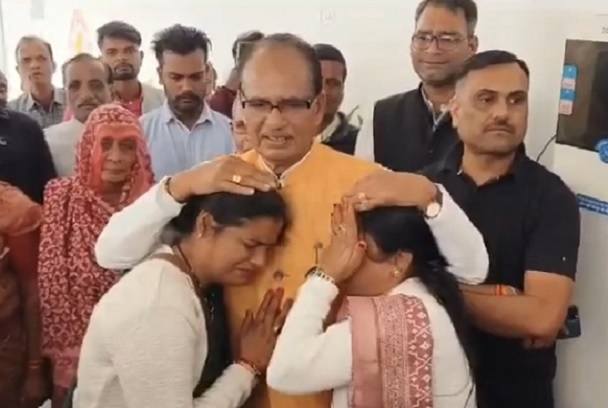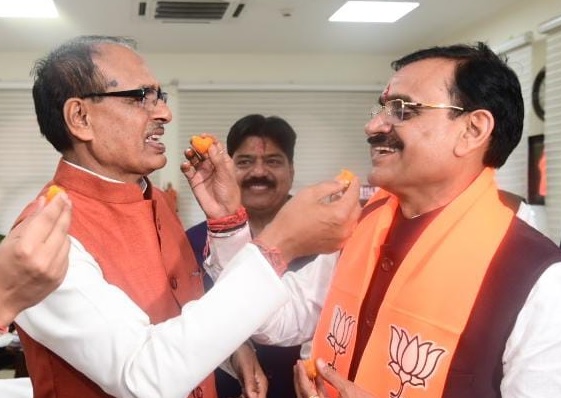INTERVIEW: Eminent Urdu poet Farooq Anjum opens up about his life, poetry and shares his memories

Shams Ur Rehman Alavi
NewsBits.in
Farooq Anjum, 79, is among the senior most poets of Bhopal. Known for his distinct style and diction, he once said:
Sher mera hai, mere gham se mukhaatib hoga
Meer hoga mere lahje mein na Ghalib hoga
[In this interview, he shares his views and recalls the era when he began composing poetry apart from Bhopal of yore]
Q. It's a basic question at the start of an interview. But kindly tell us how did you turn towards poetry?
FAROOQ ANJUM: I was inclined towards literature when I was teenagar but in those days I was discouraged to write. My maternal uncle, Taj Bhopali, the famous poet, didn't want me to turn towards poetry. However, as there was a natural tendency, I started writing and soon my compositions were praised and published too. And after that there was no looking back, as I kept penning ghazals and also experimented with other forms of poetry.
Q. Taj Bhopali was a renowned poet and was well known across the country. Why did he dissuade you from poetry?
FAROOQ ANJUM: It's true that he had so many admirers and people loved his poetry. I remember poets of the statue of Qateel Sh ifai, Ahmad Faraz, Rahi, Majrooh Sultanpuri and others coming to Bhopal and meeting him. However, my uncle felt that it was not right for me to enter the world of poetry, as in those days the society was different and poets had a tough time sustaining and running their families. So probably keeping in my mind the future of his nephew, he tried not to let me fall for it.
Q. When did you write your first composition. Was it a ghazal?
FAROOQ ANJUM: I started writing in the late 1970s. In those days, Saifia College was a hub of literature and it's magazine 'Mujillae Saifia' was published. Eminent author Dr Abdul Qawi Desnavi asked me if I could write any literary story or ghazal, and I told him that I often wrote but due to Taj sahab's fear I dare not make it public.
In fact, I showed one of my ghazals and he liked it. But told me that I should better show it to Taj sahab and get his feedback. I mustered courage and went to Taj sahab who immediately tore the paper on which the ghazal was scribbled. I was disappointed. But the ghazal was later published.
Q. You must have seen the era when Bhopal was a cultural abode and had numerous poets. Kindly share your memories with us.
FAROOQ ANJUM: Of course, it was unique atmosphere because all the veteran and master poets were alive. Poets and litterateurs regulalry came from Mumbai, Delhi, Lucknow and other cities. They would come to meet Taj Bhopali at the hotel in Ibrahimpura.
The hotels, Yusuf hotel and Ahad hotel were close to teach other. Now they no longer exist. But poets used to gather, sit, discuss and recite their poetry. There was tea and also food. It was an amazing era. Taj Bhopali sahab was a host as well as celebrity.
Q. How do you remember Taj Bhopali, who was the most loved poet of Bhopal in his era?
FAROOQ ANJUM: While he was such a popular poet, he also got me educated. In fact, I was just four when my father passed away. It was Taj Bhopali, my mamu, who took care of me and ensured that I had proper education. Also, he was excessively emotional.
It was in later period that his financial condition got weakened. But he had too much self respect and never shared his financial problems with others, though he had so many fans and followers in the period. I must say that critics and writers didn't do justice with him and his personality.
An award was instituted in his name but there is no road or monument in his memory. I saw Sheri Bhopali sahab and Kaif Bhopali sahab as well and recited mushairas along with them. Sheri sahab reflected tehzib of the bygone era and was affable, humble person. Anyone could go to his home and meet him, he didn't differentiate between people on the basis of their jobs or stature. Poets like Basit Bhopali were also around. I remember that he sat at a shop in Ibrahimpura.
Q. How do you look at your own poetic journey?
FAROOQ ANJUM: In our childhood, the impact of progressive writers was still visible. The modernists had come and were leaving an impression. I was not against tradition. I didn't like certain aspects about progressive writers and was more inclined to modernism. My ghazals were published in Afkaar and Nadeem. Later, they were published in literary magazines also. Three collections have come out so far.
Q. One of your couplets about parents and children's relationship in this era is often recited and shared. When did you write the particular shair?
FAROOQ ANJUM: It is not an old couplet. Rather, barely a decade ago. The couplet is:
Ajab rishte nibhaate hain alag rah kar mere bachche
Kabhi jaata hoo.n milne to mulaqati samajhte hain
This couplet surprisingly became too popular. It's a couplet about relationships in contemporary world. I have written much more and the ghazals are in my diwans, however, one never knows which couplet gets more attention all of a sudden. As we conclude the interview, sample his couplets. There is pain, the angst, expression of suffering, but not complete hopelessness in his works.
SELECTED COUPLETS OF FAROOQ ANJUM:
bichhaDte waqt teri yaad ke dareeche par
ham intizaar ka roshan charaaGh rakh aaye
Har subah le ke aayi tamaazat m'aash ki
sooraj hamaare jism pe neze chubho gaya
waraq waraq pe milengi mehekti tahreere.n
main jaa raha hoo.n kitaabo.n mein khushbue.n rakh kar
chalaata hai hawaa nafrat ki tu yaari ke mausam mein
qabeela khush nahi hai teri sardaari ke mausam mein
musibato.n ka sulagta jahaan roshan hai
kahee.n bhi jaao yahi aasmaan roshan hai
farishtgaan-e-hisaab o kitaab sharminda
voh seh chuka hoo.n, ki honge azaab sharminda










